Abstract
In March 1988, there was an outbreak of infection by a strain of Salmonella saint-paul with a distinctive antigenic marker. A total of 143 reports were received between 1 March and 7 June. Preliminary investigations suggested that raw beansprouts were a possible source of infection and a case-control study confirmed the association. S. saint-paul of the epidemic type was isolated from samples of beansprouts on retail sale in different cities in the United Kingdom and from mung bean seeds on the premises of the producer who was most strongly associated with cases. In addition, Salmonella virchow PT34 was isolated from samples of raw beansprouts and was subsequently associated with seven cases of infection. Four other serotypes of salmonella were also isolated from beansprouts. On 8 April the public were advised to boil beansprouts for 15 seconds before consumption, and the premises of the one producer associated with many cases were closed. As a result of these actions there was a significant decrease in the number of infections with S. saint-paul.
Full text
PDF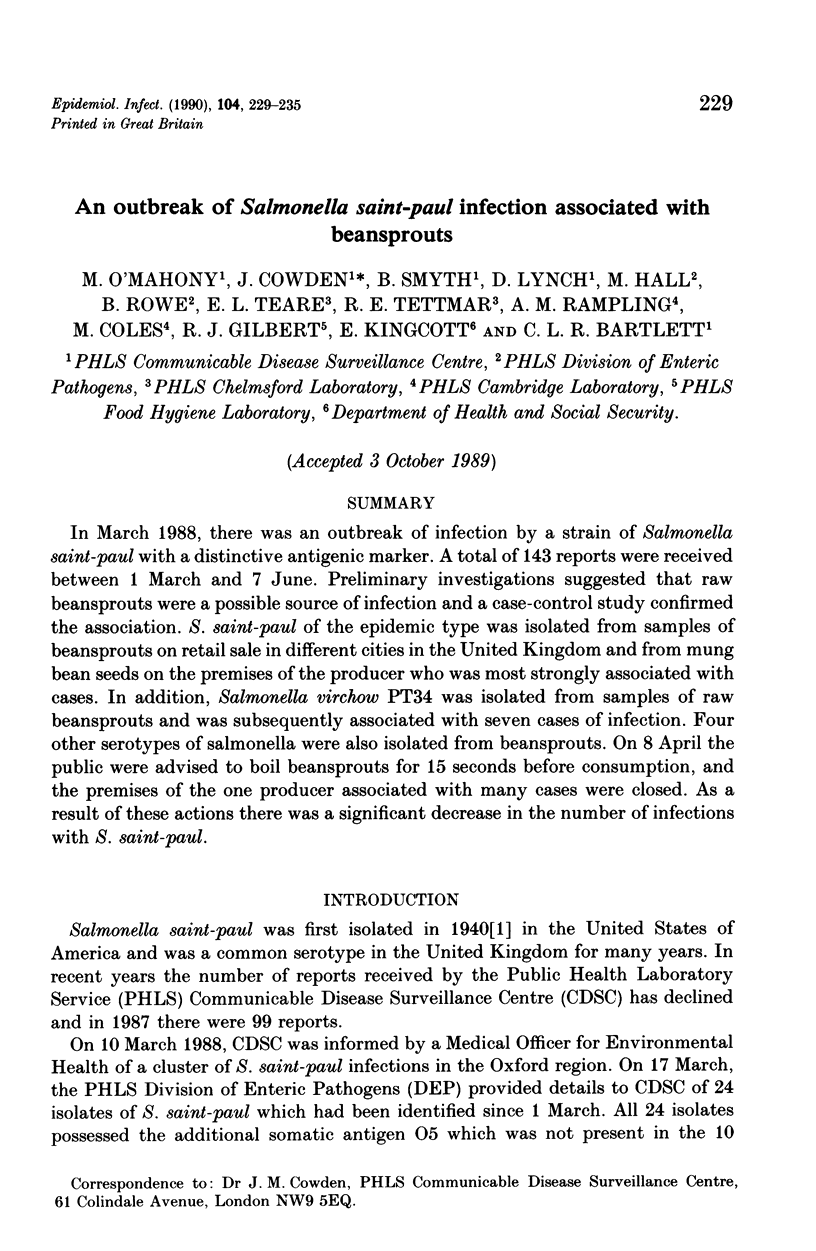
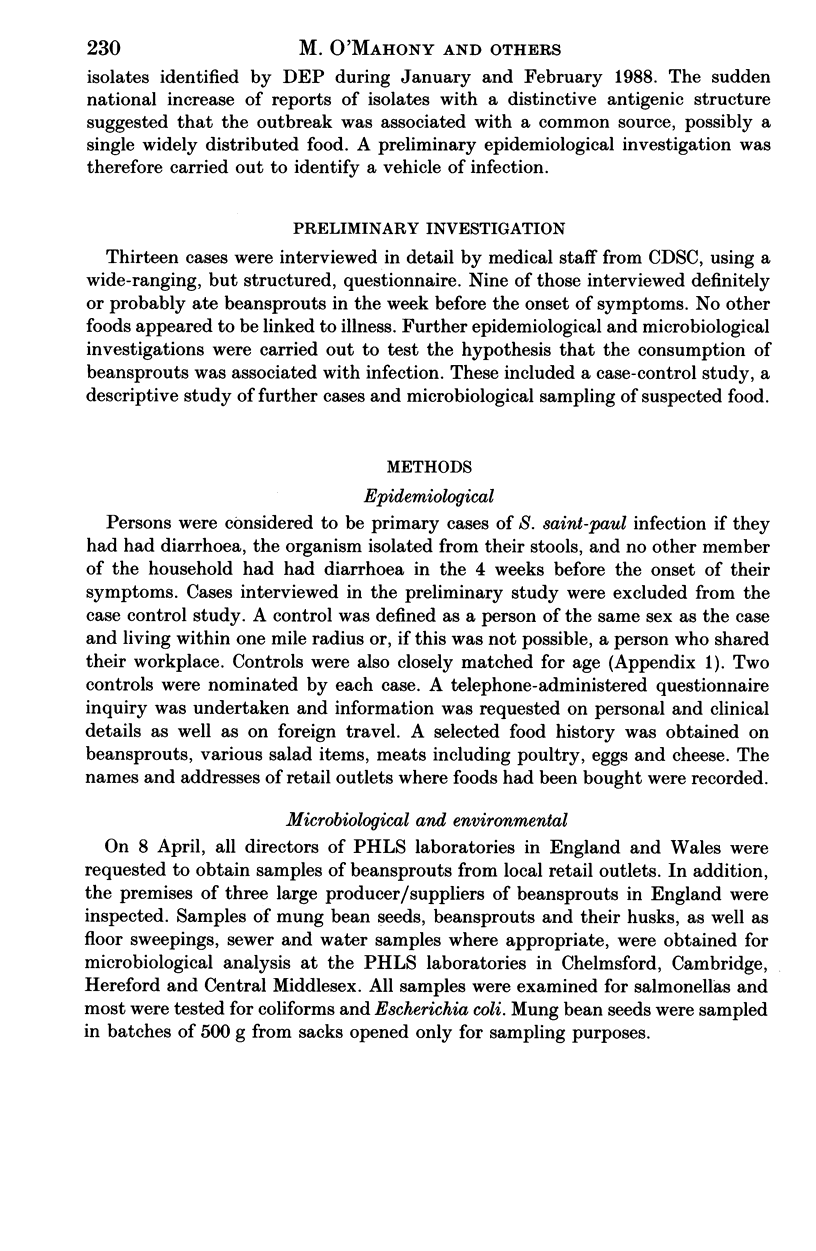
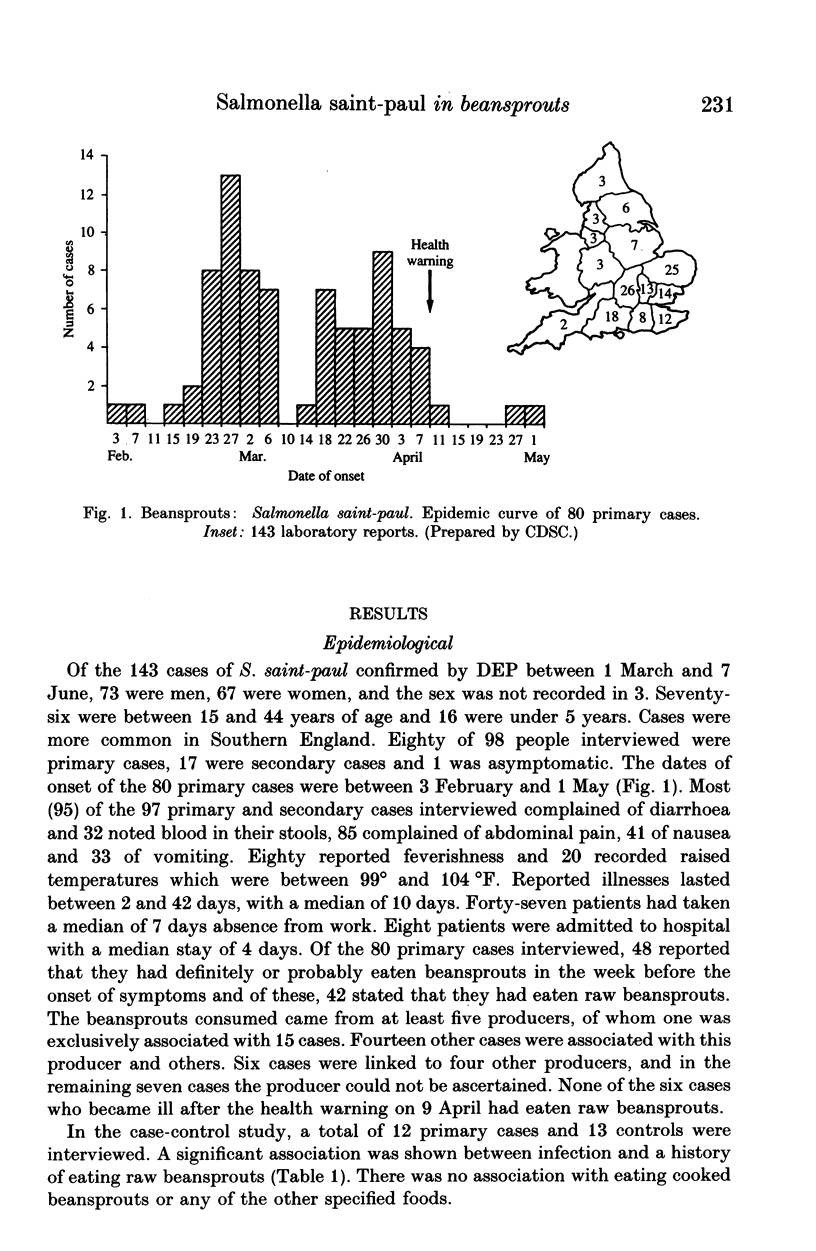
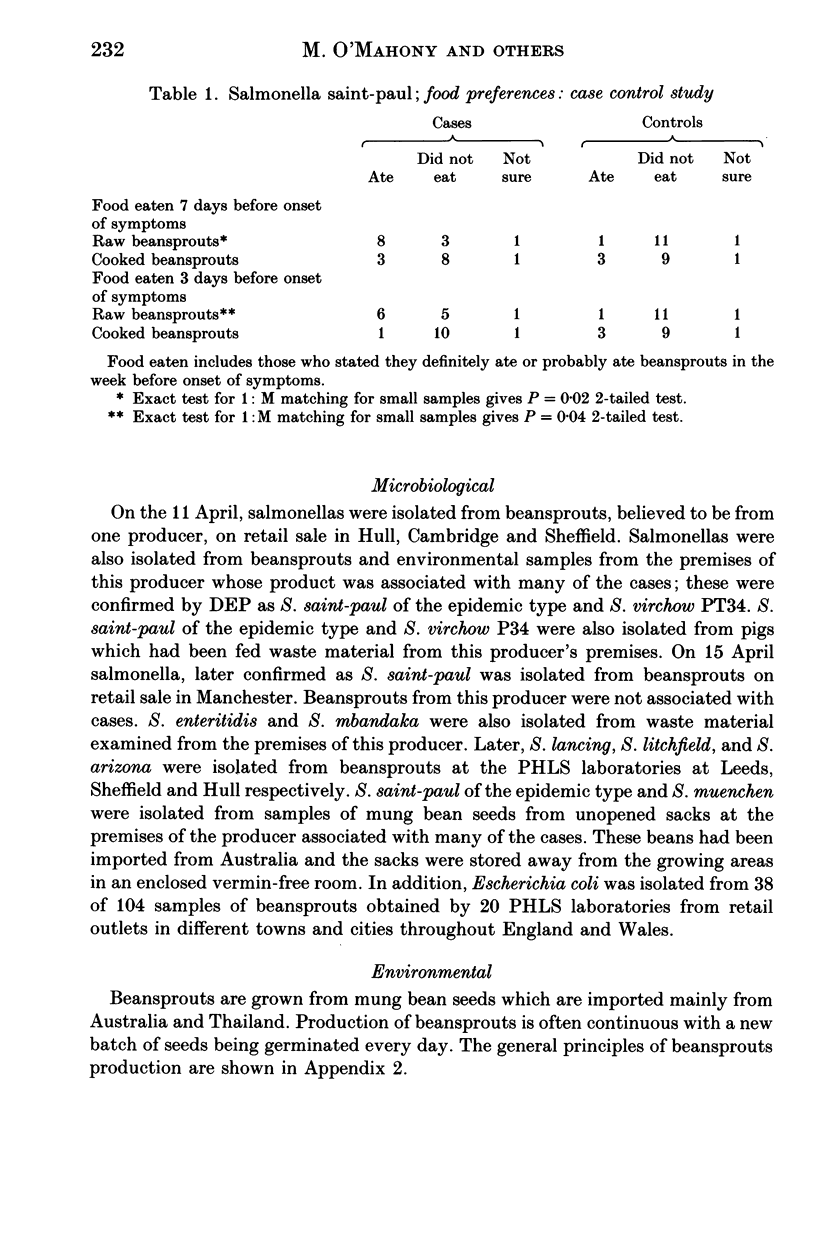
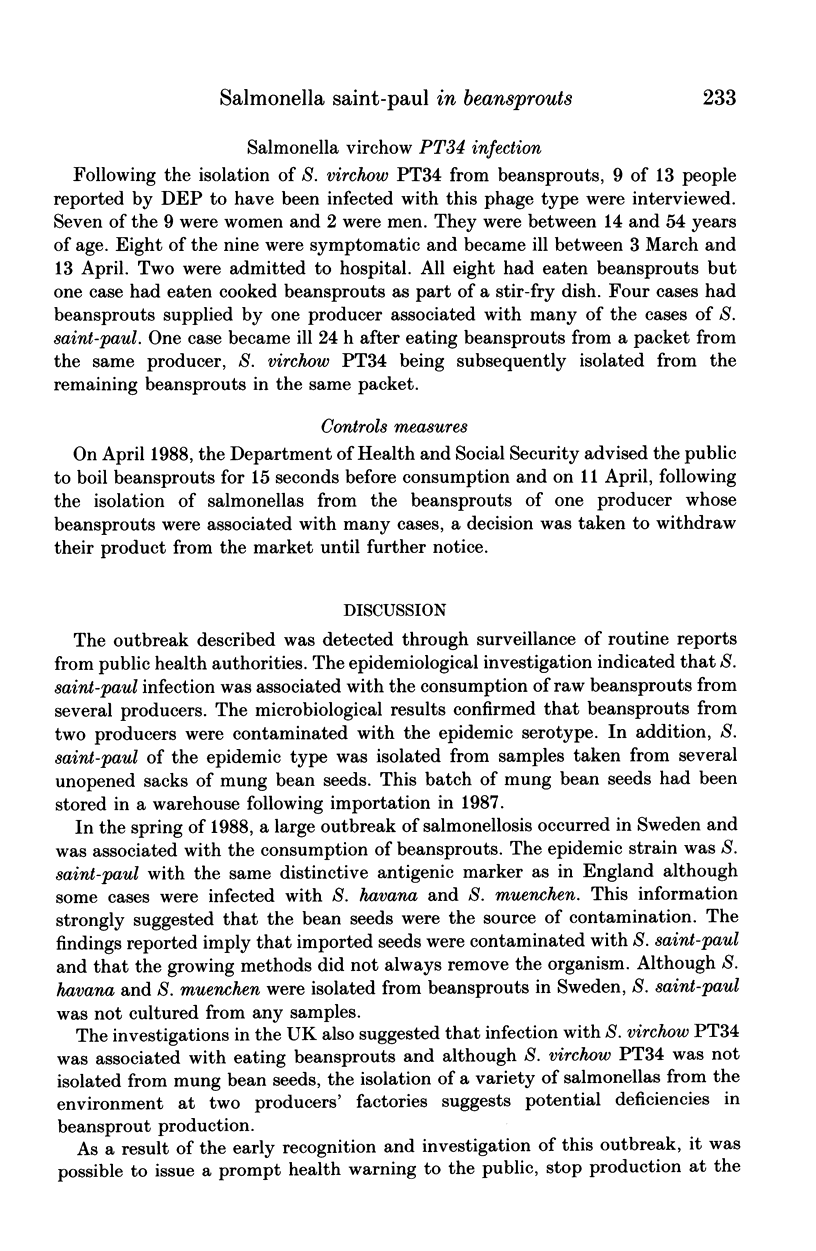
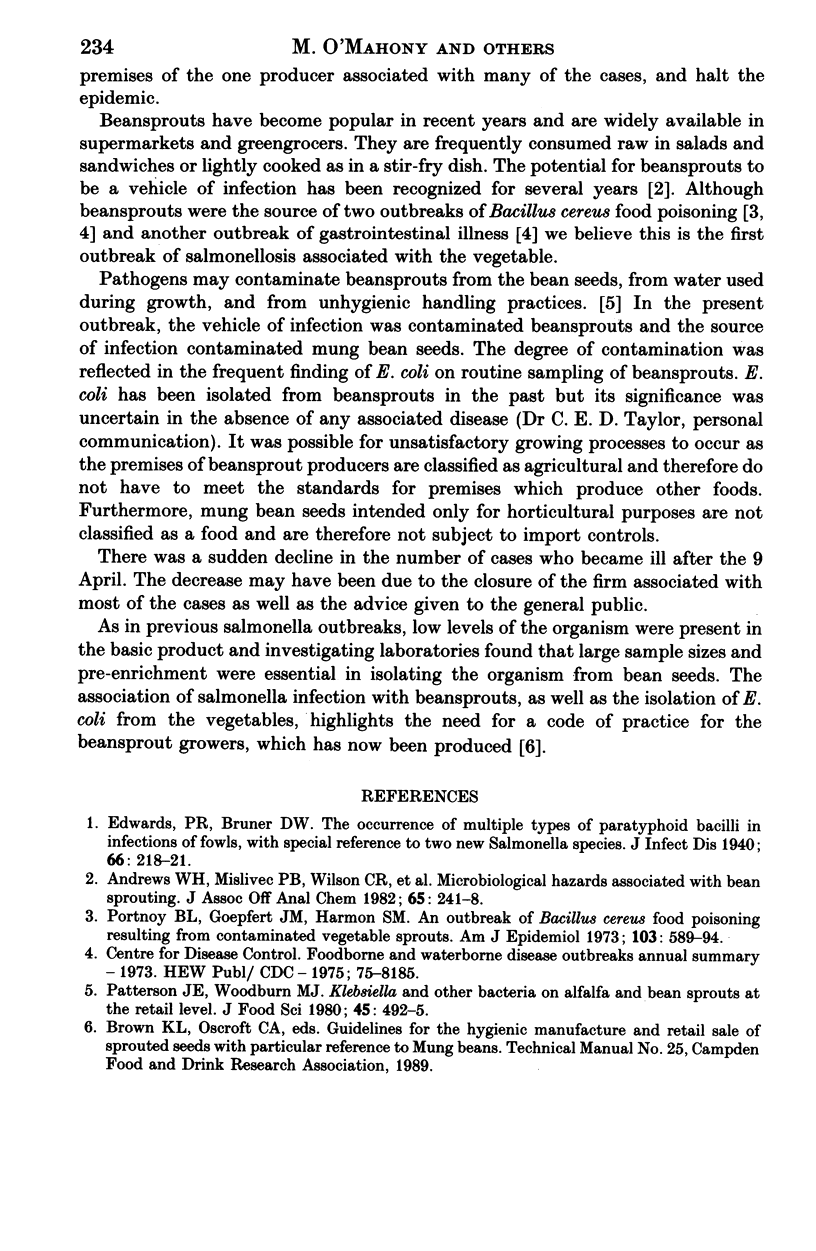
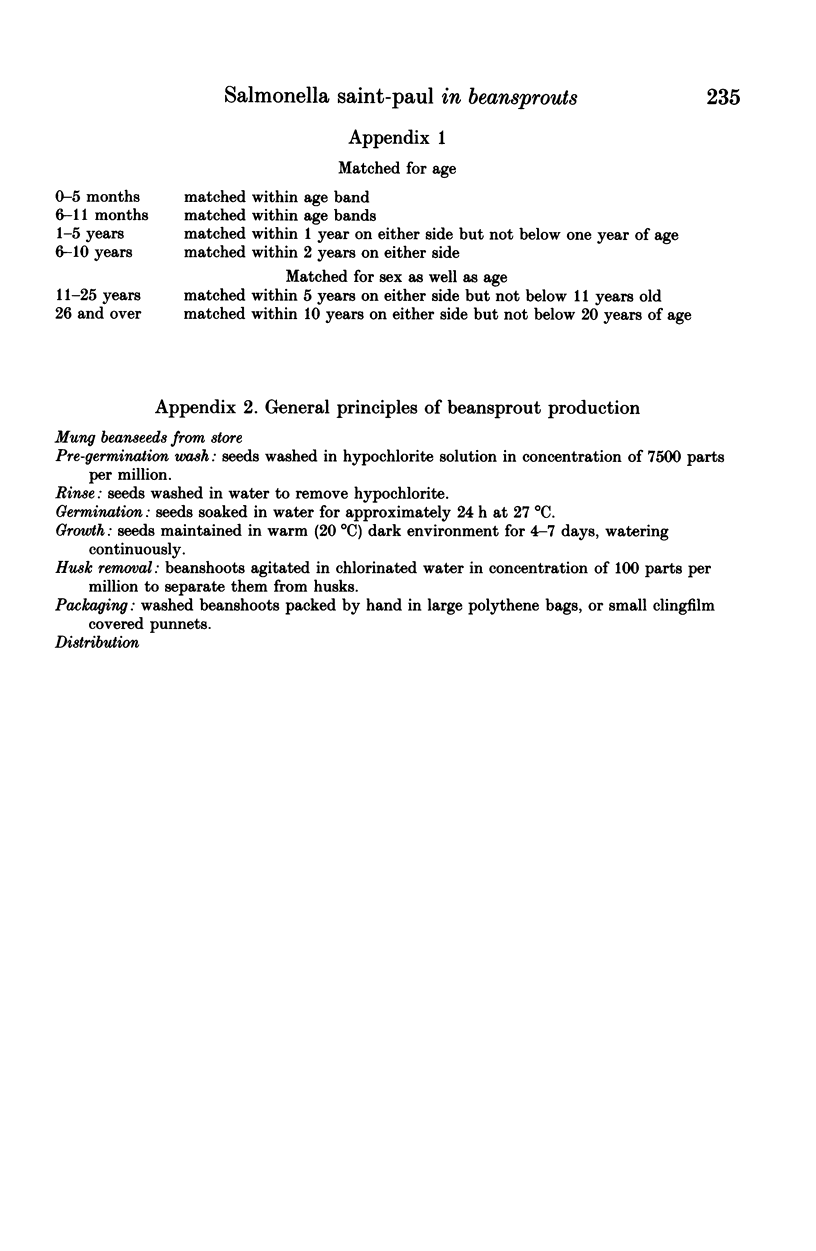
Selected References
These references are in PubMed. This may not be the complete list of references from this article.
- Andrews W. H., Mislivec P. B., Wilson C. R., Bruce V. R., Poelma P. L., Gibson R., Trucksess M. W., Young K. Microbial hazards associated with bean sprouting. J Assoc Off Anal Chem. 1982 Mar;65(2):241–248. [PubMed] [Google Scholar]
- Portnoy B. L., Goepfert J. M., Harmon S. M. An outbreak of Bacillus cereus food poisoning resulting from contaminated vegetable sprouts. Am J Epidemiol. 1976 Jun;103(6):589–594. doi: 10.1093/oxfordjournals.aje.a112263. [DOI] [PubMed] [Google Scholar]


